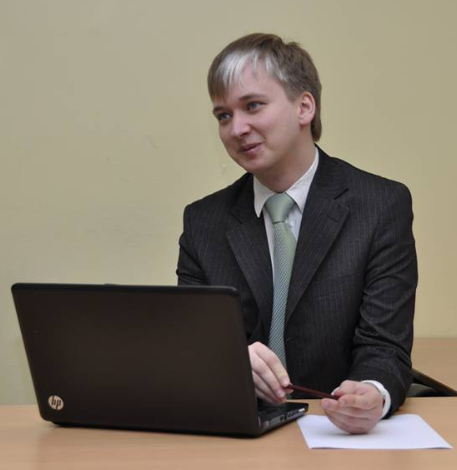OPINION | POLITICS OF MEMORY | GLORIFYING COLLABORATORS | LATVIA | ANNUAL WAFFEN SS MARCHES IN RIGA
◊
by Aleksandr Kuzmin (Riga)
◊
On 29 October 1998, a few weeks after the parliamentary elections, the outgoing Parliament of Latvia had adopted the Declaration on Latvian Legionnaires in the World War II. The vote was as follows: 50 ayes, 8 nays, 3 abstentions.
The text contains several questionable statements. Those include claiming that “The aim of soldiers who were drafted into the Legion or who joined it voluntary was to protect Latvia from the restoration of Stalin’s regime” and asking the government to “prevent insults against the honour and dignity of Latvian soldiers.” To make it clear — the ones whose reputation was intended to be defended were Nazi collaborators, voluntarily or not. And the intention was pretty obvious — as the rapporteur MP, Mr. Mauliņš, said before the vote, “this decision will be our position towards our soldiers who truly fought for the independence of Latvia”.
The declaration is also, to say the least, one-sided in citing some obscure Cold War officials claiming that “Baltic Waffen-SS Units (Baltic Legions) are to be considered as separate and distinct in purpose, ideology, activities, and qualifications for membership from the German SS”. The text omits that the Nuremberg Tribunal has only distinguished the SS riding units from the whole organisation, explicitly recognized to be criminal.
The most dangerous statement of the declaration, however, is the following:
“Some Latvian citizens did join the Latvian Legion voluntarily; however, they did so because in 1940–1941 the USSR committed genocide in Latvia. Hundreds of people were shot without trial; tens of thousands of people were deported to distant regions of the USSR. During this time, Germany also committed war crimes and genocide in Latvia, but they had a smaller impact on Latvian citizens.”
One can suppose that the idea might had been not to diminish the Nazi crimes, but to stress the Stalinist ones — real and grave, for sure. However, whatever the intentions, the result is shocking.
Tens of thousands of civilians murdered by Nazis and their local collaborators are considered a “smaller impact” than hundreds of murdered victims of Stalinism. Most of the locals killed by Nazis had been tens of thousands of Jews and thousands of Roma. Did the Parliament value their lives lower? This is not a baseless speculation — also because the “wrong” victims, those lacking Latvian citizenship, are ignored altogether.
Currently, the declaration is difficult to find on the parliament’s website, even in Latvian. The most relevant page only names the document without the full text.
Also, the Ministry of Foreign Affairs carefully avoids mentioning the declaration in its explanations of the Legion history. Perhaps, the ministry officials understand that the declaration does not bring honor for Latvia. However, this does not make the diplomats more straightforward. The ministry even says that “The conscripts were labeled ‘volunteers’.” The declaration had at least admitted the regrettable fact that some of the legionnaires were volunteers.
Anyway, the declaration has never been revoked. In 2007, there was an attempt to adopt another declaration, thanking those Latvia’s residents who fought against Nazis, condemning Nazi collaborators and revoking the 1998 declaration. The proposal was rejected, with only 18 of 100 MPs voting in favour and 63 – against.
Moreover, one of the current ruling parties, the National Alliance (NA), is still actively promoting the declaration. It’s them whom one could thank for the online availability of the English text of the declaration. In 2011, NA members of parliament had filed an official question to the Prime Minister asking how the requirements of the declaration get fulfilled. NA also used the declaration in its reasoning for making the 16th of March an official remembrance day, commemorating the legionnaires. The current Speaker of the Parliament, Ms Ināra Mūrniece, has used the declaration in her speech before the parliament as recently as in 2014.
Finally, a government-sponsored Museum of the Occupation of Latvia also quotes the text, without any critical comments, on its website.
What can be done? The Council of Europe had already invited Latvian authorities to “condemn all attempts to commemorate persons who fought in the Waffen SS and collaborated with the Nazis.” Perhaps the international organizations could also suggest revoking the shameful text which encourages minimization of the Holocaust.
◊
Aleksandr Kuzmin is the executive secretary of the Latvian Human Rights Committee (FIDH) and a member of the Latvian Russian Union. He holds two master degrees in law. He is noted for his victory in Petrova vs. Latvia before the European Court of Human Rights.
